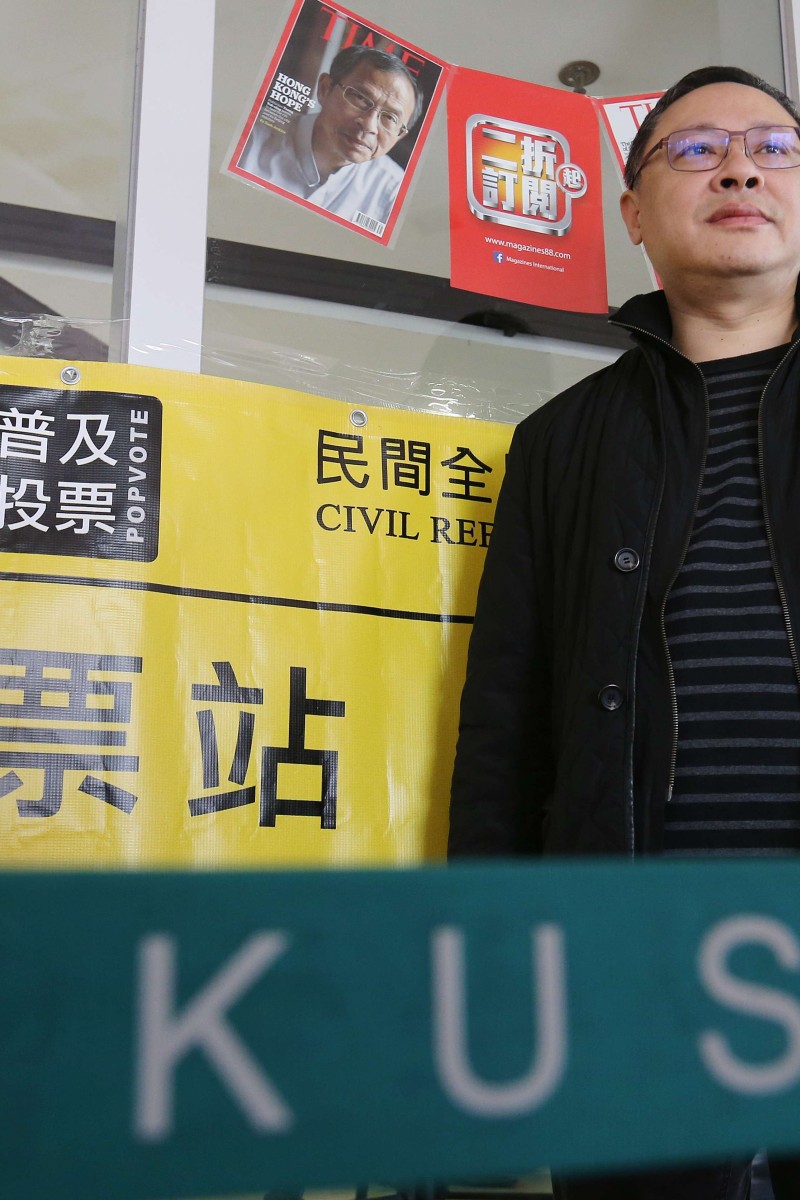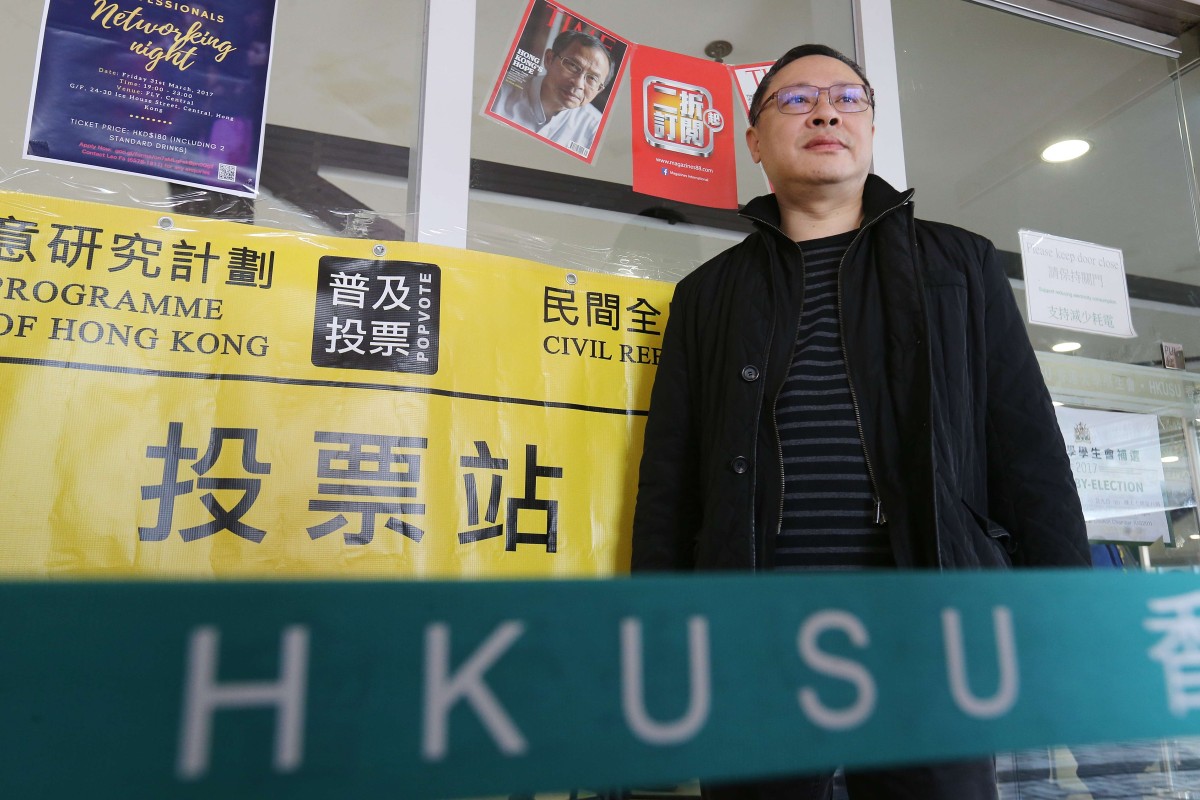
Despite allowing similar “civil referendums” in the past, Polytechnic University staff have decided that this year they will not allow volunteers to lend space on campus for a two-week vote for the city’s next leader
 Benny Tai says PolyU owes organisers an explanation.
Benny Tai says PolyU owes organisers an explanation.A local university has stopped an organisation from setting up a polling station as part of a mock ballot for the city’s next leader.
Occupy Central co-founder Benny Tai Yiu-ting, one of the unofficial poll’s organisers, said Polytechnic University staff blocked volunteers from setting up booths last week, even though they had booked a room through the student union.
“The school said that students did not have the right to lend out the space to the Centre for Social Policy Studies to organise this ‘civil referendum’,” Tai said.
PolyU was supposed to be one of three polling stations set up as part of a two-week vote in the city, which began on March 10.
Hong Kong residents can vote for their preferred candidate – John Tsang Chun-wah, Carrie Lam Cheng Yuet-ngor or Woo Kwok-hing – online via the messaging app Telegram or in booths at the University of Hong Kong and Chinese University.
The idea behind the poll is to allow public participation in what is largely seen as a “small circle” election for the city’s leader.
Tai said he was baffled as to why PolyU had pulled the plug at the last minute.
“We also organised the same event in 2012 and 2014 on Polytechnic University’s campus and it was peaceful and completely legal. There is no way to tell if the cancellation had any political considerations behind it or even political persecution ... but the school should come forward with a proper explanation,” Tai said.
PolyU said the rooms could not be used by external parties, except on request for events that were “closely related to education and research”.
In a similar poll during the last chief executive election in 2012, and also in 2014 for a referendum on universal suffrage, organisers used the Centre for Social Policy Studies’ facilities at PolyU. The university said no formal application was made on either of those occasions and they had only learnt of it when it was widely publicised.
PolyU’s student union president, Tommy Mak Chun-kit, said they were told on Saturday that letting a third party use the premises would be a violation of the school’s regulations and that they could not guarantee that the event would be run smoothly if students and organisers pressed ahead as planned.
Dr Chung Kim-wah, director of the Centre for Social Policy Studies, made the final decision to pull out as he did not want to put students at risk.
A total of 20,802 people have voted in the unofficial poll, 1,022 of them at physical booths as of 5pm on Sunday.
Carol Lai, a former university professor, said she had voted in person because she believed she had a right to choose the next leader.
YP junior reporter Eunice Yip thinks that the poll is a good way for people to express their opinions on the candidates and that it helps the leaders of Hong Kong see how a portion of the public would vote. Eunice goes on to point out that, “This poll keeps our names secret [when voting] so there’s nothing to be afraid of [in terms of backlash].” Another junior reporter, Helen Wu, agreed that the poll should have been allowed at PolyU.
“It doesn’t defy any laws and it’s not too radical,” she said, “It will be interesting to see how this social experiment turns out.”